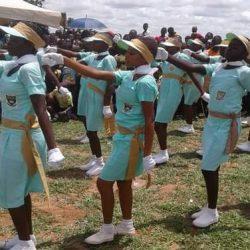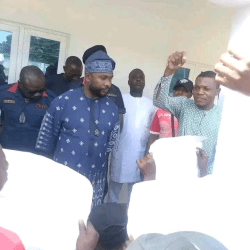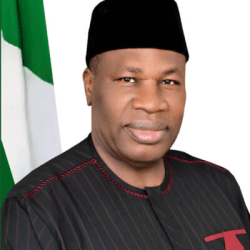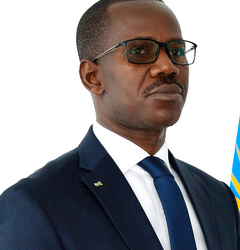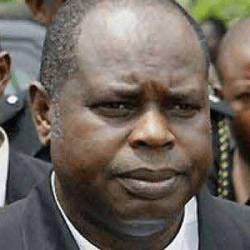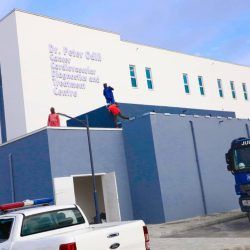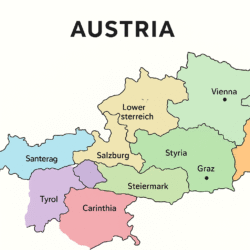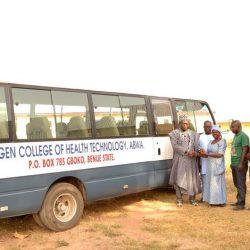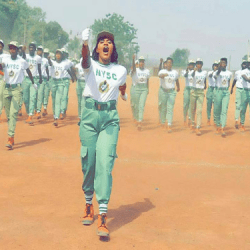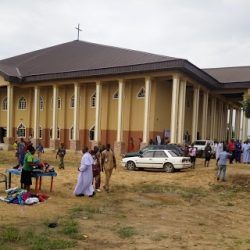In a legal battle at the Benue State High Court in Makurdi, businessman Dr. Peter Adejoh testified that he has no personal ownership of land in the Mbachume community, which has been the focus of a significant legal dispute. In suit No: MHC/179/23, Dr. Adejoh, under cross-examination by counsel to the plaintiffs, Dr. Mbafan Ekpendu, asserted that the land in question is part of a public housing estate project, developed in partnership between BMC Homes Limited and the Benue State Government. He clarified that he does not hold any personal title to the land in question, effectively distancing himself from the plaintiffs’ claims.
This court case involves allegations by several individuals representing their communities, who argue that their ancestral land in Tse-Agbuu, Utur, and Ikyov/Mbachume, Bar Council Ward of Makurdi Local Government Area, is being unlawfully taken without compensation. They have sought an injunction to halt the acquisition.
Background of the Case
The legal dispute revolves around the alleged compulsory acquisition of land by the Benue State Government for development purposes. The plaintiffs, represented by Messrs Abraham Uwua, Terlumun Tyav, Terwase Zeku, and Pastor Cyprian Terwase, argue that the land acquisition violates their rights as the ancestral owners of the land. They claim that the state government, in collaboration with private developers, is taking over their communal land for purposes unrelated to public interest, without offering any compensation.
The plaintiffs are seeking a court order to prevent the Benue State Government, Dr. Peter Adejoh, and BMC Homes Limited from further actions on the land until their claims are addressed. The case centers around the plaintiffs’ demand for recognition of their rights to the land and compensation for any disruption or destruction caused during the development process.
Dr. Peter Adejoh’s Testimony
Dr. Peter Adejoh, a key figure in the case, provided testimony that refuted many of the claims made by the plaintiffs. Adejoh stated unequivocally that he does not personally own any land in the Mbachume community, distancing himself from accusations of land grabbing or improper acquisition. He explained that the land in question is part of a housing estate project spearheaded by BMC Homes Limited, a company he represents, and the Benue State Government.
“It is a housing estate project for public use between a company I represent (BMC Homes Limited) and the Benue State Government. Personally, as Peter Adejoh, I do not own any land in Mbachume,” he testified.
Adejoh further denied any knowledge of the destruction of economic trees, crops, or property in the disputed area, countering the plaintiffs’ allegations that such actions had occurred during the development. He also rejected claims that he had conspired with the Benue State Government or its Ministry of Lands, Survey, and Solid Minerals to harass, arrest, or otherwise intimidate landowners.
The Role of BMC Homes Limited
BMC Homes Limited, according to Adejoh, is the central actor in the housing project at the heart of the controversy. The company’s partnership with the Benue State Government aims to develop a public housing estate, which is intended to benefit the community at large. Adejoh emphasized that his role in the project is purely representative and corporate, clarifying that any land acquisition for the project is being handled through the appropriate channels, involving the state government and in accordance with legal procedures.
This distinction is important, as it attempts to dispel any notion that Adejoh is personally profiting from the acquisition of communal land or acting outside the scope of his role within BMC Homes Limited.

Allegations by the Plaintiffs
The plaintiffs, representing various factions of the Utur and Ikyov/Mbachume communities, argue that their ancestral lands are being unjustly taken without compensation or proper justification. They allege that the government’s actions amount to a violation of their rights and that the process of acquisition lacks transparency. Central to their complaint is the claim that economic trees, crops, and other properties on the land have been destroyed by bulldozers, which they allege were brought in by agents of the state or the developers.
In addition, the plaintiffs assert that there has been a concerted effort to harass and intimidate landowners through arrests and other coercive means, which they claim is part of a broader conspiracy between the developers and the state government.
Denial of Conspiracy
In his defense, Dr. Adejoh firmly denied all allegations of conspiracy or improper conduct. He stated that he had never engaged with the Ministry of Lands, Survey, and Solid Minerals in any secretive manner, nor had he authorized the use of bulldozers or any other heavy equipment to destroy farmland, crops, or trees belonging to the plaintiffs. Adejoh reiterated that the land acquisition process was being carried out through official state channels, and that any suggestion of personal involvement in underhanded actions was unfounded.
This denial forms the crux of Adejoh’s defense, as he seeks to distance himself from the personal accusations and focus the court’s attention on the public nature of the housing project.
Legal Claims of the Plaintiffs
The plaintiffs are seeking an interlocutory injunction to stop the Benue State Government and BMC Homes Limited from taking any further action on the disputed land. Their claim is rooted in the protection of their ancestral land rights, which they believe are being violated by the state’s compulsory acquisition for a project that they argue does not serve the public interest.
They further allege that the acquisition is being carried out without any form of compensation or proper consultation, which would be a breach of their legal rights as landowners under Nigerian law.
The Issue of Compensation
One of the central issues in the case is the lack of compensation. Under Nigerian law, compulsory land acquisition by the government is permissible only if it serves an overriding public interest and is accompanied by adequate compensation to those whose land is being acquired. The plaintiffs argue that the government has failed to meet this requirement, and they have yet to receive any form of compensation for the loss of their land or the destruction of their properties.
Public Interest vs. Private Gain
The plaintiffs’ case also raises broader questions about the nature of land acquisition and whether the housing estate project truly serves the public interest. While the Benue State Government and BMC Homes Limited have positioned the project as a public housing initiative, the plaintiffs contend that it is, in fact, a private venture that benefits the developers more than the community. This aspect of the case could have significant implications for how public-private partnerships are viewed in the context of land development in Nigeria.
Court Proceedings and Adjournment
The court proceedings on Wednesday were marked by Adejoh’s detailed testimony, which will be considered alongside evidence presented by the plaintiffs. The matter has been adjourned to November 28, 2024, when the Benue State Government is expected to open its defense. The outcome of this case could have far-reaching implications, not just for the parties involved
